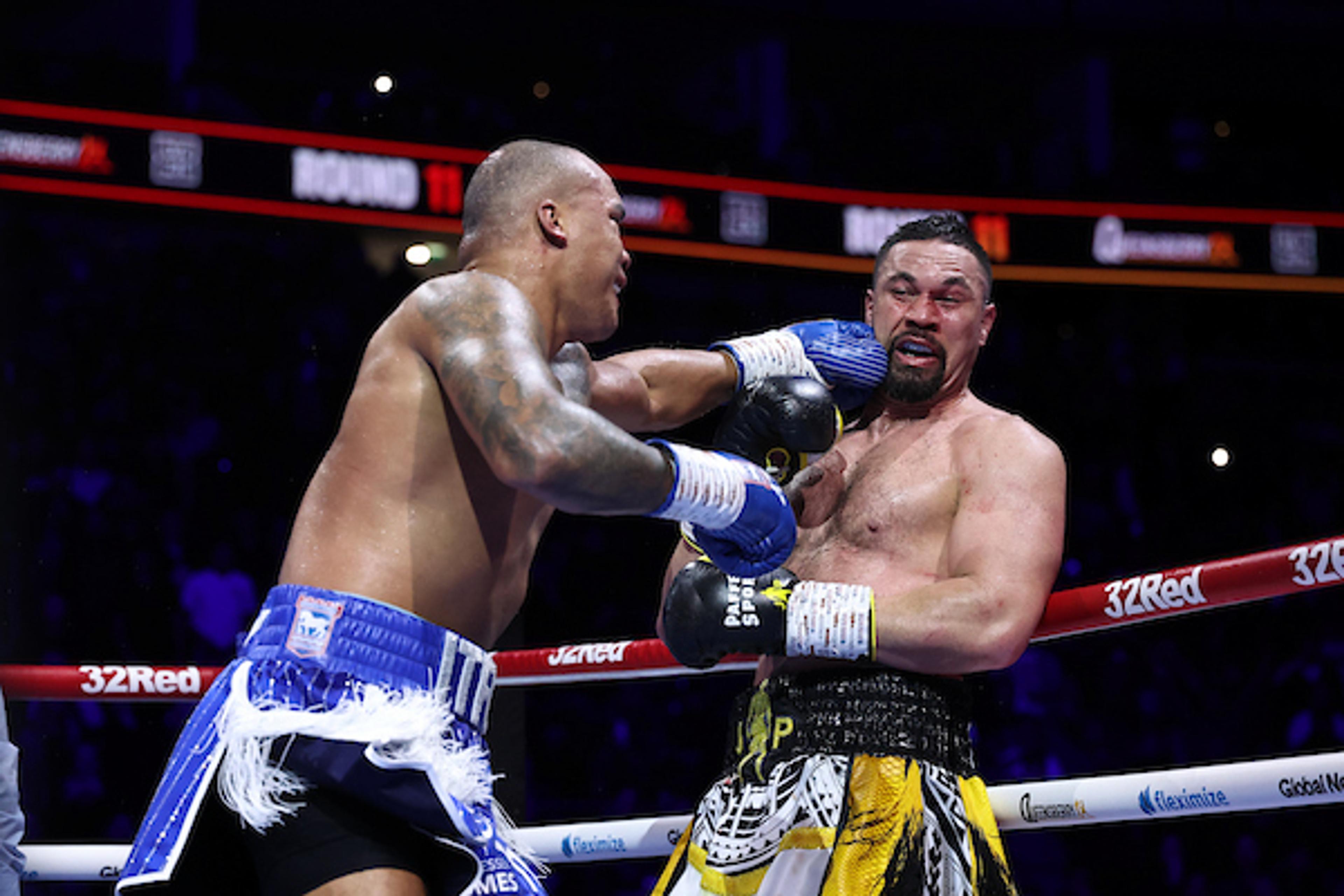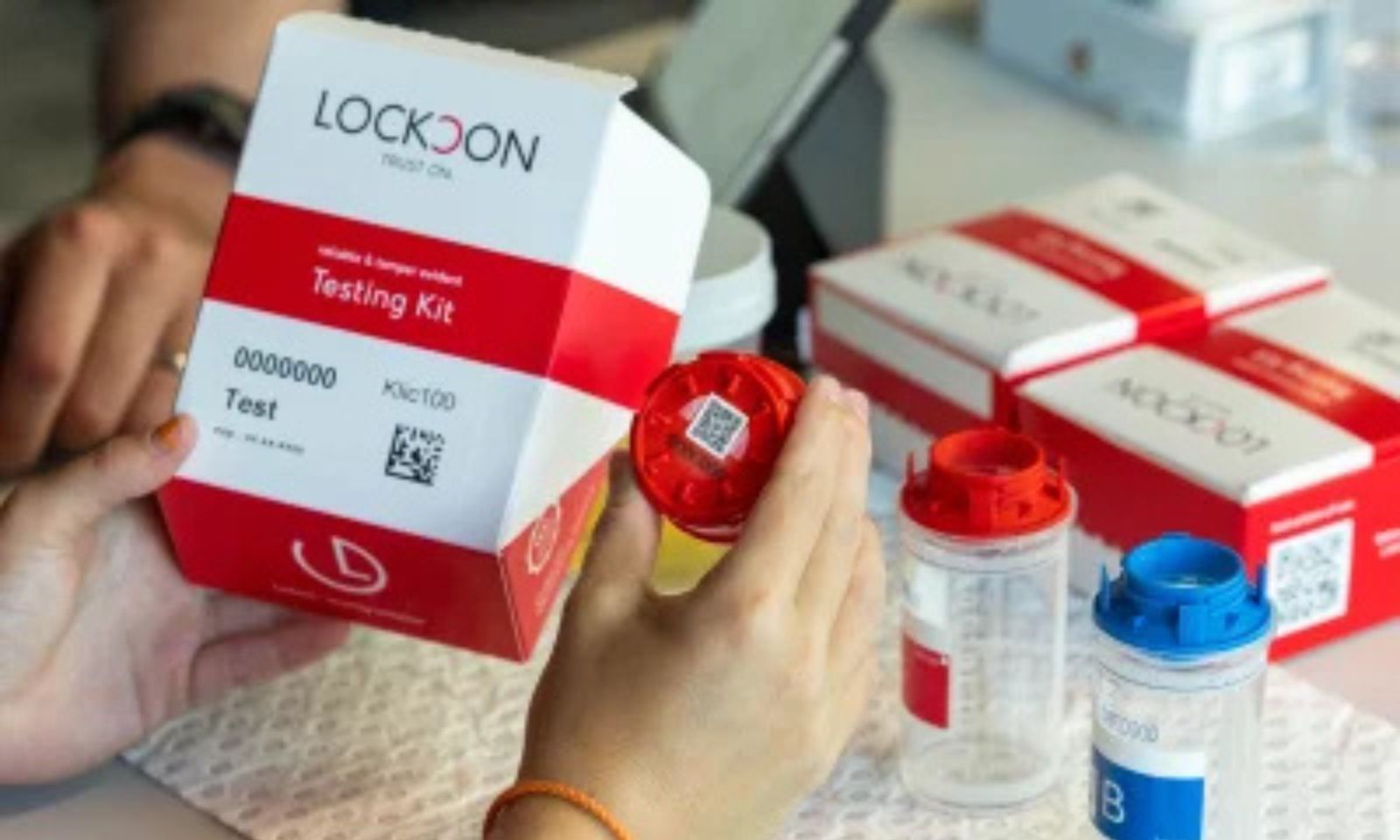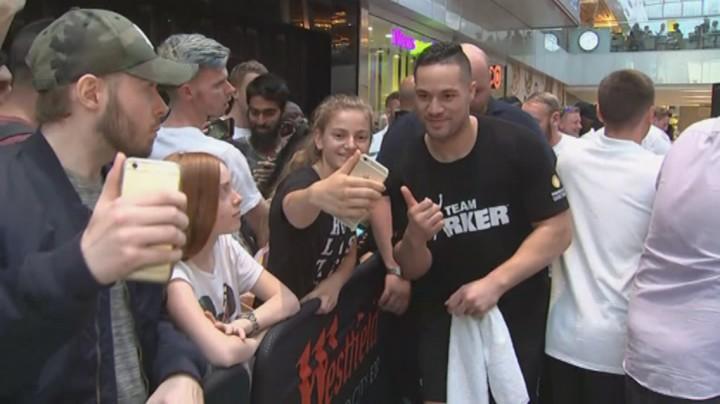

Joseph Parker, right, during his fight with Fabio Wardley at London's 02 Arena in Greenwich on 25 October, the day a drug test later returned an adverse finding.
Photo/Photosport/Queensberry Promotions/Leigh Dawney
Parker denies taking banned substance after adverse drug test on fight day against Brit
As an investigation gets underway, the New Zealand-born Sāmoan boxer says he will fight to clear his name.


Moana Pasifika end Lautoka curse to win 'Battle of the Pacific'


A.R.T sets new Pacific music pace with ‘First Thursday’ releases


Moana Pasifika end Lautoka curse to win 'Battle of the Pacific'


A.R.T sets new Pacific music pace with ‘First Thursday’ releases
New Zealand-born Sāmoan boxer Joseph Parker says he is confident he will be cleared, after being told that a voluntary drug test he took on the day of his latest fight returned what authorities call an “adverse analytical finding".
Parker, 33, fought British heavyweight Fabio Wardley on 25 October, a bout he lost in the 11th round.
Parker released a public statement over the weekend in response to media reports about the test result.
“This came as a real surprise to me. I did not take any prohibited substance,” he wrote.
“I do not use performance-enhancing drugs and I do not support their use. I am cooperating fully with the process now underway, and I am confident the investigation will clear my name.
“When the investigation is complete, I will speak openly and answer questions.”

Joseph Parker has denied taking any banned substances and says he is cooperating fully with the ongoing investigation. Photo/Photosport/Queensberry Promotions/Leigh Dawney
Promotion and governing body confirm notification
Parker’s promoters, Queensberry Promotions, reportedly announced on Saturday that they were notified that the Voluntary Anti-Doping Association (VADA) had issued an adverse finding linked to a sample collected on fight day.
The organisation says no further comment will be made while the case is active.
Meanwhile, the British Boxing Board of Control (BBBofC) has confirmed an investigation is now underway. The governing body has not commented on the substance reported, nor on any possible outcomes, saying it will follow its standard procedures.

The New Zealand Anti-Doping Agency oversees drug testing in sport and investigates any adverse findings in athletes’ tests. Photo/sportintegrity.nz
How the anti-doping process works
The anti-doping processes in boxing generally follow a set sequence under VADA and the UK Anti-Doping (UKAD) guidelines. These include:
The A-sample finding is where a urine sample given by the athlete is tested in a World Anti-Doping Agency (WADA)-accredited laboratory.
If the lab detects a prohibited substance or marker, it is recorded as an Adverse Analytical Finding (AAF).
The athlete and relevant parties are notified.
An AAF is not a ruling of guilt, it just starts a review process.
An athlete may request B-sample testing:
Athletes have the right to request that the sealed “B-sample” be opened and tested.
If the B-sample does not confirm the A-sample, the case can be closed.
If it does confirm it, the case usually proceeds to the disciplinary phase.

Joseph Parker snaps photos with fans and signs autographs at an open workout session in London in 2018. Photo/screengrab/1News
Provisional suspension (case-by-case):
Depending on the type of substance and governing body rules, authorities may impose a provisional suspension while the case is assessed.
The BBBofC has not announced any provisional action regarding Parker.
Hearing and possible sanction
If the case moves forward, an independent panel will hear evidence from all sides.
Sanctions vary widely depending on the substance, the athlete’s level of fault, and whether use was intentional or unintentional.
Penalties can range from a warning to a multi-year ban, but no outcome can be predicted at this stage.
'I did not take any prohibited substance'
Parker has insisted that he voluntarily took the test and is working with investigators.
“Thank you to everyone who has sent messages of support,” he wrote. “It means a great deal to me and my family.”
Until the investigation concludes, Parker remains eligible to maintain his training schedule.
No hearing date or B-sample information has been publicly released.